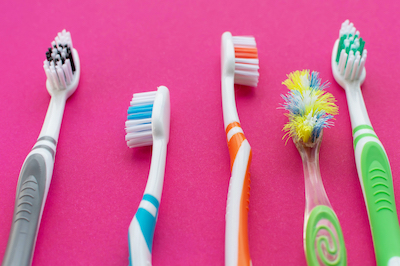Good oral hygiene is essential for maintaining healthy teeth and gums. Brushing your teeth twice a day is one of the most important steps you can take to keep your mouth healthy. But with so many toothbrush options available, choosing the right one can be overwhelming. Two of the most popular options are manual toothbrushes and electric toothbrushes. In this article, we’ll explore the pros and cons of each and help you decide which one is right for you.
Manual Toothbrushes
Manual toothbrushes have been around for centuries and are still widely used today. They come in a variety of shapes, sizes, and bristle types, making it easy to find one that suits your individual needs. Here are some of the pros and cons of using a manual toothbrush:
Pros:
- Cost-effective: Manual toothbrushes are very affordable and can be found in nearly every store that sells toothbrushes. They typically cost only a few dollars and are often sold in multi-packs, making them even more budget-friendly.
- Easy to find: As mentioned, manual toothbrushes are widely available in stores, making them easy to find when you need to replace your brush.
- Convenient for travel: Manual toothbrushes are lightweight and compact, making them a convenient option for travel. You don’t have to worry about packing chargers or finding an electrical outlet to charge your toothbrush.
Cons:
- Less effective: Manual toothbrushes require more effort and skill to use properly, and not everyone may have the dexterity to brush effectively. In addition, manual toothbrushes are not as effective at removing plaque as electric toothbrushes.
- Can be harsh on gums: Some people may brush too hard with a manual toothbrush, which can lead to gum irritation and even receding gums over time.
Electric Toothbrushes
Electric toothbrushes have become increasingly popular over the past few decades, thanks to their ease of use and effectiveness. They use rotating or vibrating bristles to remove plaque and provide a deep clean. Here are some of the pros and cons of using an electric toothbrush:
Pros:
- More effective: Electric toothbrushes are more effective at removing plaque than manual toothbrushes. They provide a deeper clean and can reach areas that are difficult to reach with a manual toothbrush.
- Easy to use: Electric toothbrushes require less effort and skill to use properly, making them a great option for those with limited dexterity or those who simply want an easier brushing experience.
- Timer: Many electric toothbrushes come with a built-in timer that ensures you brush for the recommended two minutes. This can be especially helpful for children who may rush through brushing or those who have trouble gauging time.
Cons:
- Cost: Electric toothbrushes can be expensive, with some models costing hundreds of dollars. In addition, you may need to replace the brush heads every few months, which can add to the overall cost.
- Charging: Electric toothbrushes require charging, which can be inconvenient if you forget to charge your toothbrush or don’t have access to an electrical outlet.
- Bulkier and heavier: Electric toothbrushes are typically bulkier and heavier than manual toothbrushes, which can make them less convenient for travel.
Which Toothbrush Should You Choose?
Both manual and electric toothbrushes have their pros and cons, so which one should you choose? Ultimately, the choice comes down to personal preference and individual needs.
If you are on a tight budget, a manual toothbrush may be the best option for you. They are affordable and widely available, making them a convenient choice for most people. However, if you have trouble brushing effectively or want a deeper clean, an electric toothbrush may be worth the investment.
If you are considering an electric toothbrush, there are many options to choose from. Some models come with a variety of features, such as multiple cleaning modes and pressure sensors, while others are more basic. It’s important to do your research and read reviews before making a purchase to ensure you choose the right model for your needs and budget.
No matter which toothbrush you choose, it’s important to brush twice a day for two minutes each time. In addition to brushing, it’s also important to floss daily, use mouthwash, and visit your dentist regularly for cleanings and checkups.
Both manual and electric toothbrushes have their pros and cons, and the choice ultimately comes down to personal preference and individual needs. Manual toothbrushes are cost-effective and easy to find, but may be less effective at removing plaque and require more effort to use properly. Electric toothbrushes are more effective at removing plaque and easier to use, but can be expensive and require charging. Whatever toothbrush you choose, make sure to brush twice a day for two minutes each time and maintain good oral hygiene habits to keep your mouth healthy.










